Alaa Abdel Fattah: British-Egyptian activist given 'medical intervention' - family
- Published
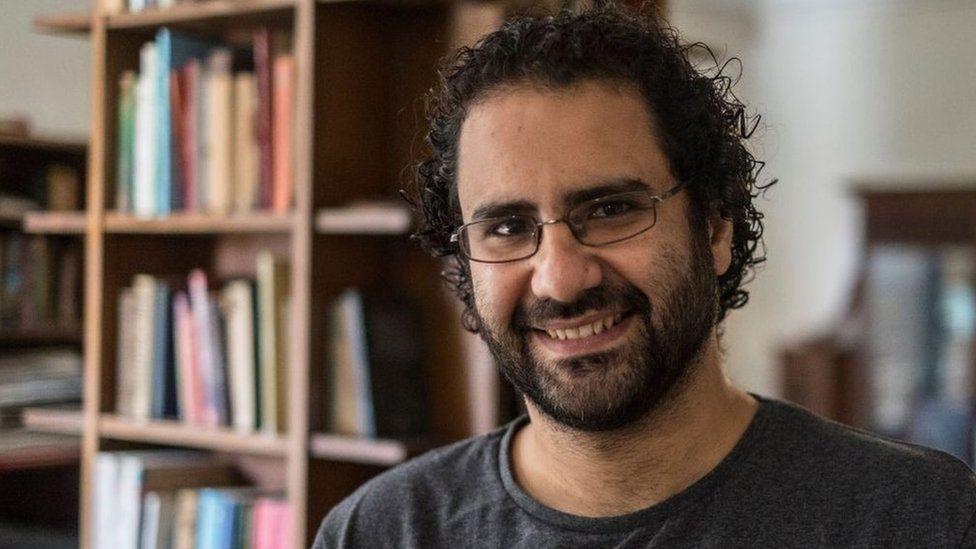
The UN human rights chief said on Tuesday that Alaa Abdel Fattah's life was "at acute risk"
The family of jailed British-Egyptian pro-democracy activist Alaa Abdel Fattah, who has been on hunger strike, say they have been informed he has "undergone a medical intervention".
They said officials at Egypt's Wadi al-Natroun prison had told his mother, Laila Soueif, that it took place "with the knowledge of a judicial authority".
His lawyer was later prevented from visiting him despite having a permit.
Abdel Fattah escalated his hunger strike on Sunday by refusing water.
The 40 year old, who is imprisoned for allegedly "spreading false news", has become a symbol of the 60,000 political prisoners believed by human rights groups to be languishing in Egyptian jails. Egypt insists there are none.
Abdel Fattah began a partial hunger strike seven months ago, consuming a maximum of 100 calories a day, in a bid to pressure authorities to allow British diplomats to visit him.
With the authorities continuing to refuse consular access or even acknowledge his British citizenship, he told his family in a letter last week that he would only drink water until the COP27 climate summit opened in the Egyptian Red Sea resort of Sharm el-Sheikh on Sunday, and then stop even doing that.
On Wednesday, after three days with no news, his family demanded that authorities prove he was still alive and expressed concern that they might be force-feeding him or be putting him on intravenous drips against his will.
They were reacting to comments by President Abdel Fattah al-Sisi, who told his French counterpart that Egypt was "committed to ensuring that [the] health of Alaa Abdel Fattah is preserved", and Foreign Minister Sameh Shoukry, who stressed that "necessary healthcare" was provided to inmates.
In statement issued on Thursday evening, Egypt's prosecutor general said that Abdel Fattah was in "good health" and did not need to be transferred to hospital.
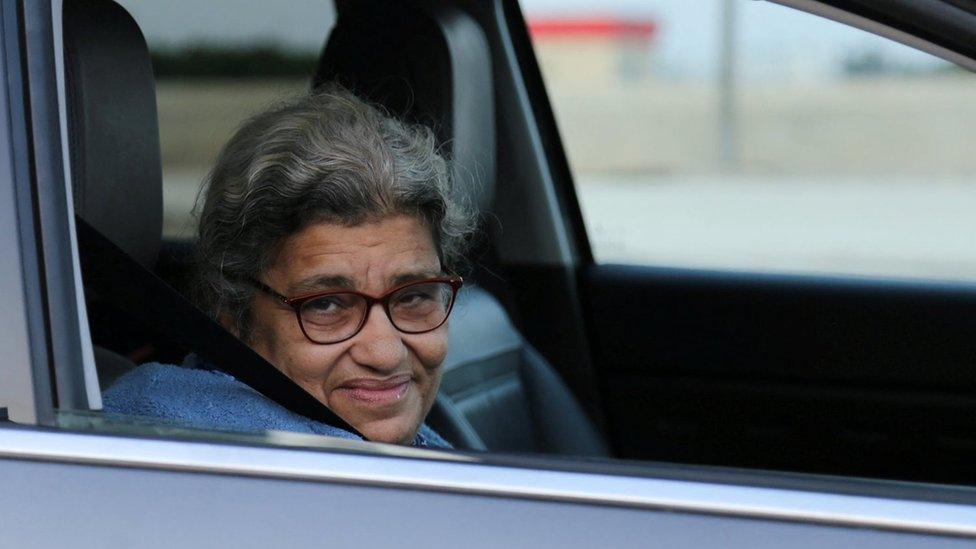
Alaa Abdel Fattah's mother, Laila Soueif, has been waiting outside Wadi al-Natroun prison for news
"I think this is the most stressful time we have ever been through as a family, and we have been through a lot over the past years," Abdel Fattah's sister, Mona Seif, told BBC World News on Thursday.
She said her mother had been going to the prison every day since Sunday, "demanding proof of life, demanding a letter".
"All of sudden today she was informed that she was not allowed to wait by the prison and that there had been medical intervention taken with the authorisation of judicial entities," she added.
"We have no idea what sort of medical intervention. We don't know what triggered them to take these medical interventions."
After that news emerged, she said, Abdel Fattah's lawyer, Khaled Ali, was informed that the prosecutor general had granted him permission to visit his client for the first time since early 2020.
Mr Ali travelled to Wadi al-Natroun and waited outside, but he later tweeted that he was denied access by the interior ministry "under the pretext that the permit was dated" the day before, external.
"We're incredibly worried that medical decisions for Alaa are not being made by independent doctors free from interference and coercion by the Egyptian authorities," said Freshta Sharif of Amnesty International UK.
"The Egyptian prison authorities' secretive response to Alaa's hunger strike must end, and he should be allowed independent medical care from qualified health professionals in proper compliance with medical ethics, with Alaa's family fully consulted and allowed unfettered access to him."
There was no immediate comment from the Egyptian government.
A spokesperson for the UK Foreign, Commonwealth & Development Office said: "The continued detention of Alaa Abdel Fattah, a British-Egyptian citizen and human rights defender, must end."
"We continue to call for his urgent release at all levels. The prime minister raised his case with Egyptian President Sisi on [Monday] and made clear the UK's expectation that the case is resolved swiftly."
Mona Seif said she was "not at all" satisfied with the efforts of the British government to secure his release.
"What I am most disappointed and furious with is that our Prime Minister, Rishi Sunak, went to Sharm el-Sheikh, shook hands with Abdul Fattah al-Sisi, the president of Egypt, and returned... without even managing to secure consular access or get us proof of life."
"I don't think the Egyptian authorities are taking the concerns of the UK government seriously... The trade deals, the business deals, are continuing very smoothly despite the fact that they are holding a British citizen, exposing him to all sorts of violations."
(July 2022) Alaa Abdel Fattah: 'He’s certain he’ll never come out of prison alive'
Abdel Fattah, who was born in Cairo and obtained British citizenship last year through his London-born mother, first rose to prominence during the 2011 uprising in Egypt that forced long-time President Hosni Mubarak to resign.
Since Mr Sisi came to power in 2014 after leading the military's overthrow of Mubarak's democratically elected successor, he has spent most of the time in prison or police detention.
Last December, he was convicted of the charge of "spreading false news" in relation to his social media posts - a charge human rights groups condemned as spurious - and sentenced to five years in prison.
The complaint also accused Sanaa Seif - a human rights defender who has been jailed three times herself for advocating for her brother and who flew from the UK to Sharm el-Sheikh this week to campaign for his release - of "conspiring with foreign agencies" and "incitement against the Egyptian state". Public prosecutors will decide whether to pursue it.
Related topics
- Published9 November 2022
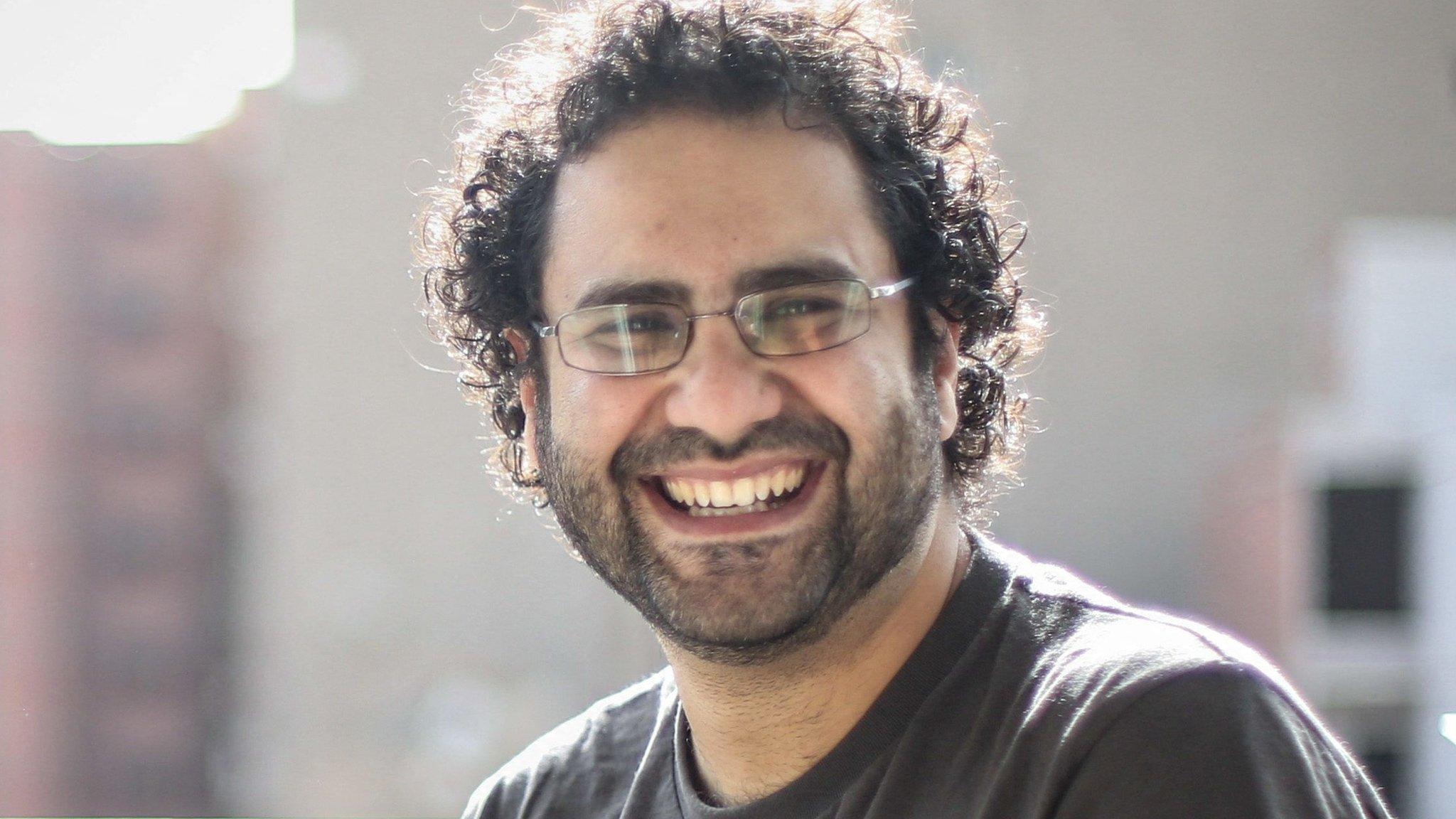
- Published7 November 2022
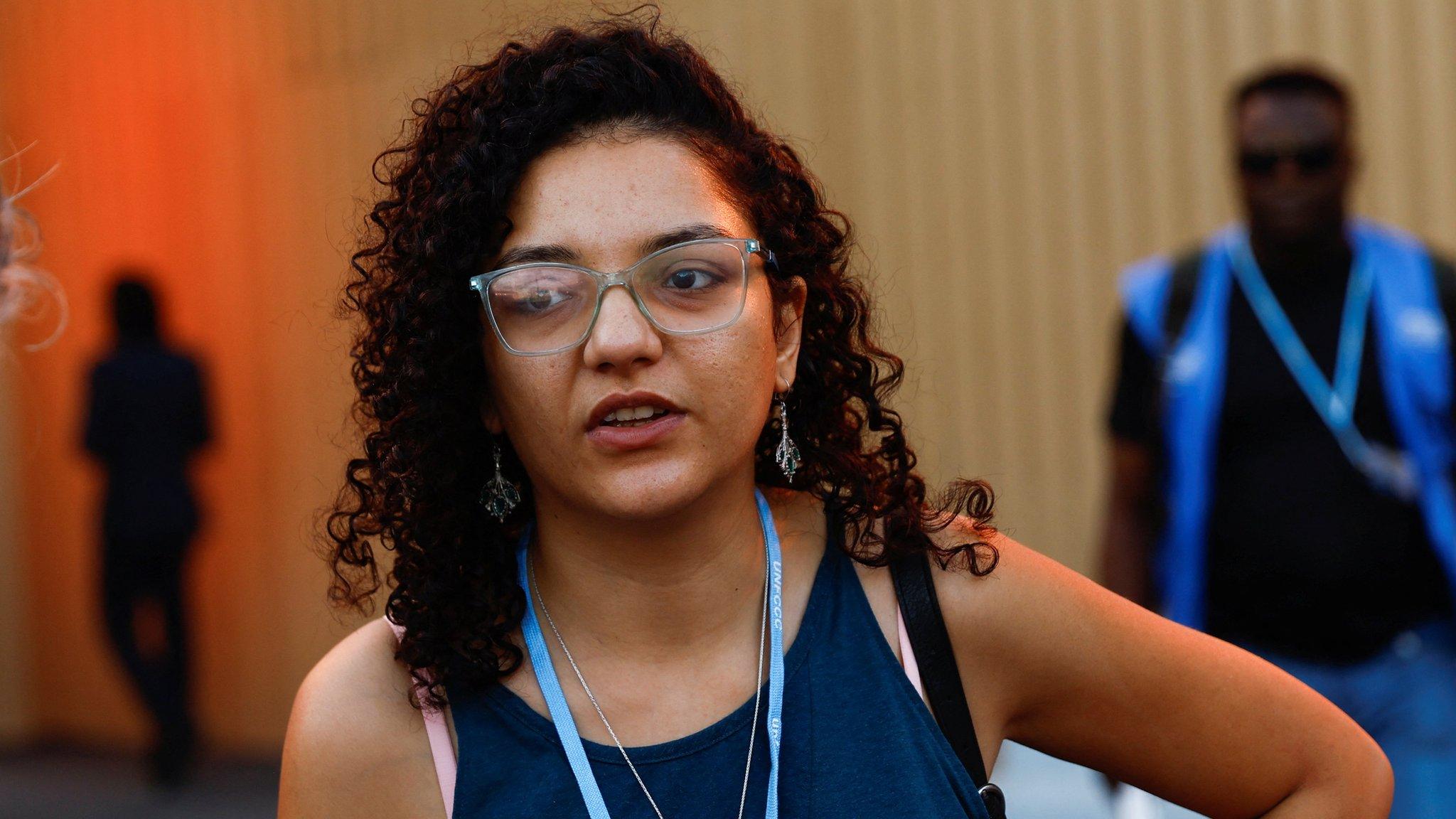
- Published7 November 2022
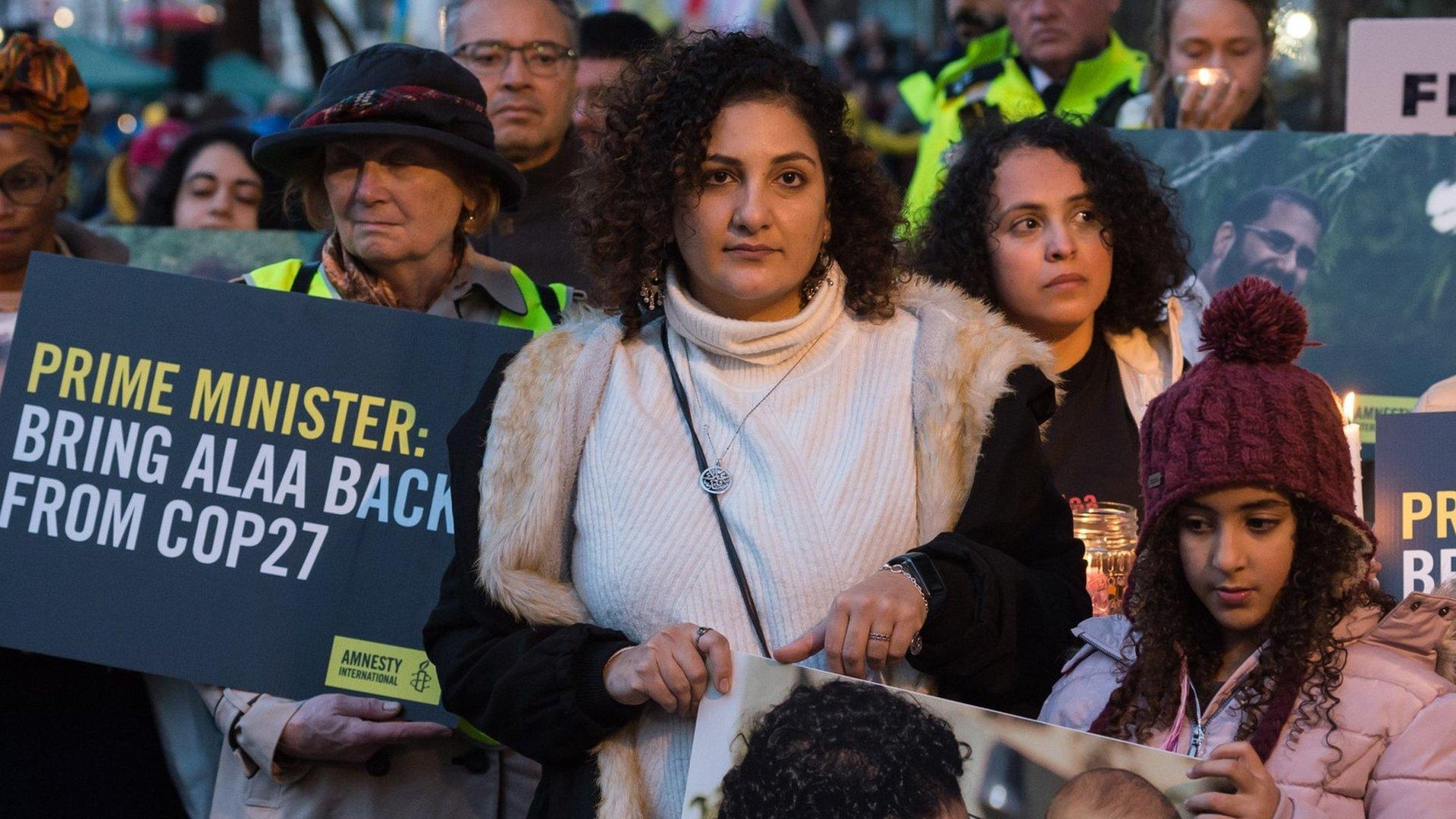
- Published1 November 2022
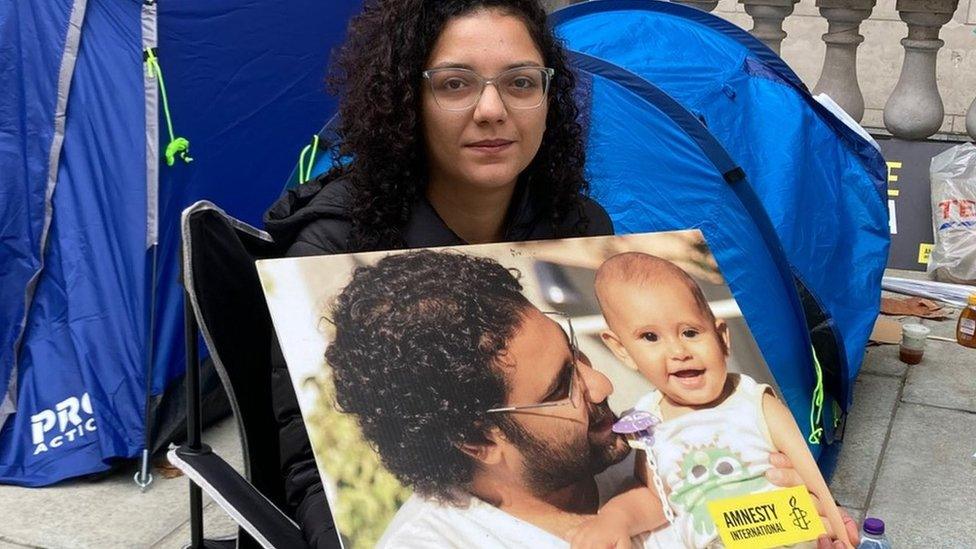
- Published21 June 2022
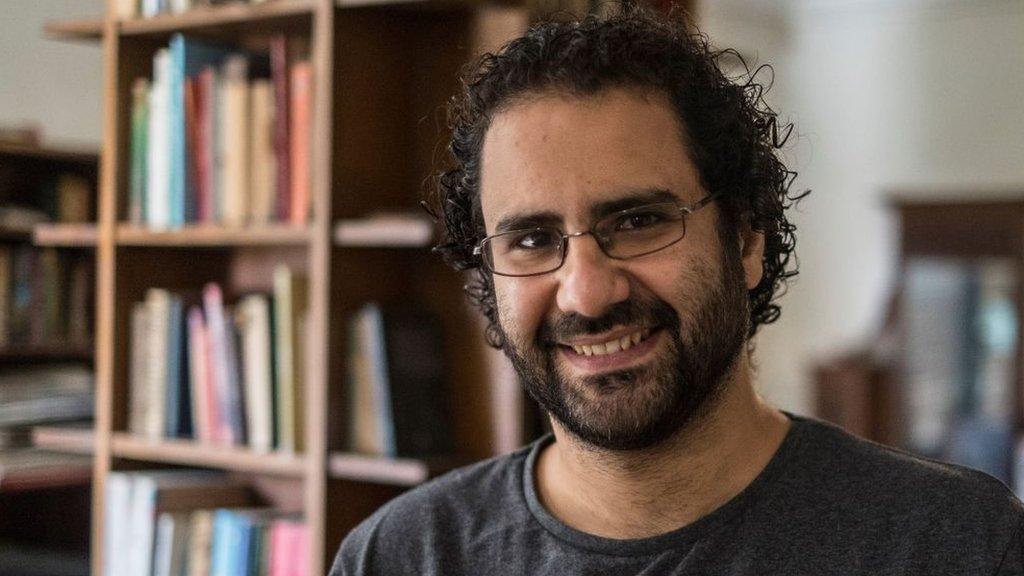
- Published18 May 2022
